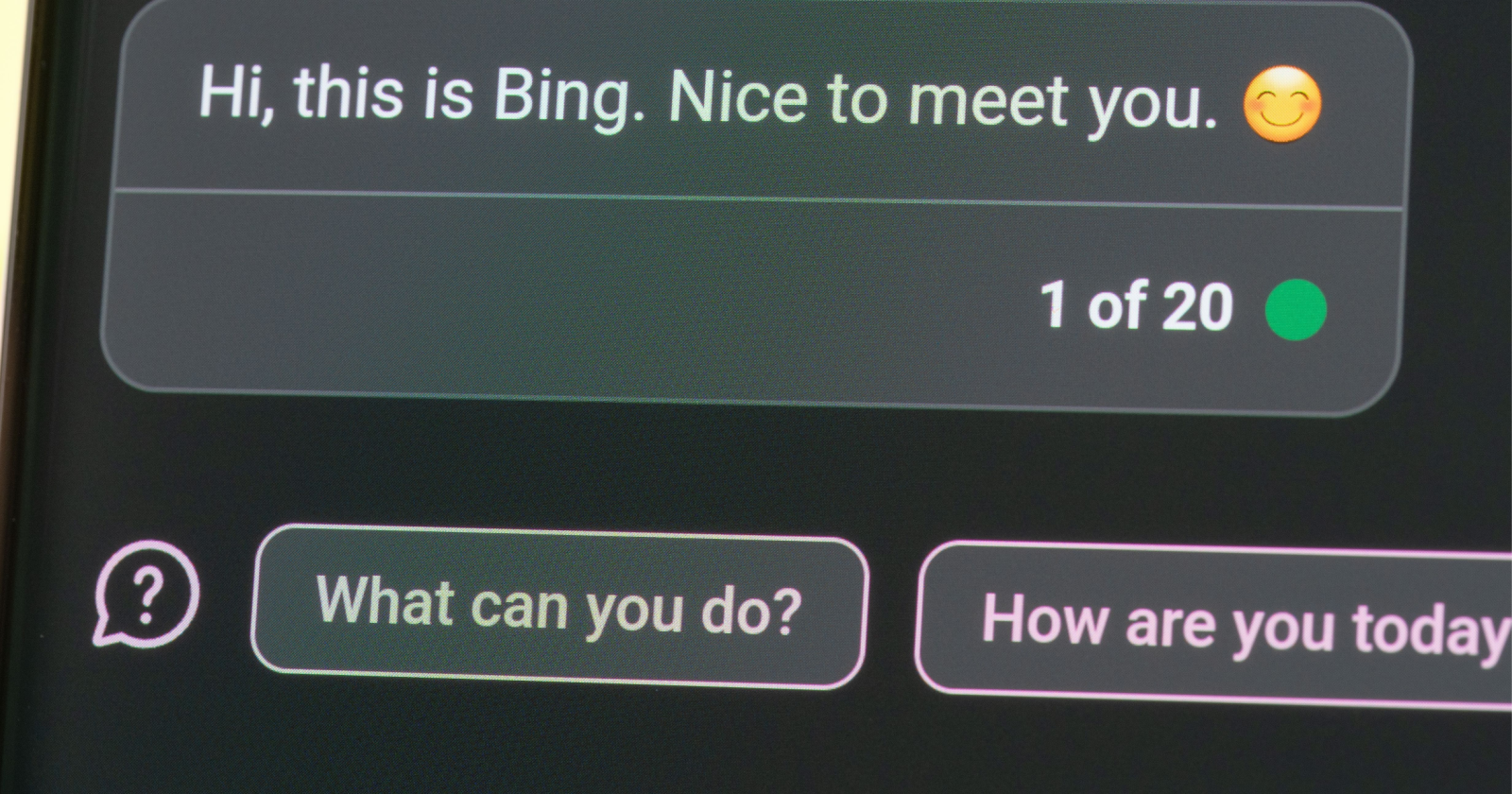Microsoft introduced the ads for chat API this week: an advertising solution designed to monetize AI chat experiences seamlessly and engagingly.
According to the announcement, the ads for chat API would create native advertising experiences that benefit partners, consumers, and advertisers.
Who Would Benefit From The Ads For Chat API?
The ads for chat API can potentially benefit those who use AI-powered chat, including:
- Partners (select publishers, apps, and online services) who could monetize content shared during chats.
- Advertisers who could reach target audiences who engage with chatbots from partners about relevant topics.
- Consumers who could find the right product or service recommendations based on their chats.
Although the initial announcement didn’t provide details regarding which partners will have access to the API, a recent blog post suggests the group may include Microsoft Start partners.
A spokesperson from Microsoft added that the company would provide more information about partners soon, adding:
“Microsoft is aiming to work with online services, apps, and publishers who are investing in their own AI chat functionality and want to monetize this through advertising.”
Ultimately, partners could generate more revenue through AI-chat advancements while creating an experience that suits their audiences.
In a recent interview, Kya Sainsbury-Carter, Corporate VP of Microsoft Advertising, said:
“The power of this technology is to help our customers be more efficient in a time of doing more with less, improving not just the return on ad spend but also the return on time spent in using our platforms. This is a tremendous opportunity for us.”
When asked about growing concerns over generative AI chat services reducing the traffic publishers receive from organic search, Sainsbury-Carter responded:
“The value proposition that we see for publishers specifically as we go forward is driving more traffic and clicks—not less—and ensuring that publishers and partners earn more money. So we’re exploring how we might be able to share ad revenue from Bing Chat in different ways as we learn what behaviors look like.”
In a recent blog post, Yusuf Mehdi, Corporate Vice President & Consumer Chief Marketing Officer of Microsoft, also reassured publishers of Microsoft’s intent:
“…we are also exploring additional capabilities for publishers including our more than 7,500 Microsoft Start partner brands. We recently met with some of our partners to begin exploring ideas and to get feedback on how we can continue to distribute content in a way that is meaningful in traffic and revenue for our partners.”
How Does The Ads For Chat API Work?
Using the ads for chat API, partners choose the ad formats audiences prefer to integrate within chat content.
Like native advertising, it focuses on delivering ads that blend in with the platform’s content and user experience, maintaining a consistent look and feel.
By offering partners the ability to customize ad formats, the advertising experience aligns with the platform’s native environment, creating a less disruptive experience for consumers.
The API can serve ads on chat platforms that Microsoft or other companies developed, allowing advertisers to reach a more extensive audience network.
Microsoft Continues Its AI Advancements
The introduction of ads for chat API follows Microsoft’s recent reveal of the next generation of AI features in Bing and Edge and the end of the Bing AI waitlist.
With over 100 million daily active users on Bing, Microsoft could offer publishers a profitable new revenue stream and an expanded ad audience to advertisers.
At its upcoming Microsoft Build event, Microsoft plans to showcase the latest developments in GitHub Copilot, machine learning, Azure OpenAI Service, GPT-4, .NET, and more.
As a result of changes to OpenAI’s data usage policy, the data used for training its language models doesn’t include information shared via the API unless users explicitly agree to contribute it for this purpose.
Featured Image: Daniel Chetroni/Shutterstock





![AI Overviews: We Reverse-Engineered Them So You Don't Have To [+ What You Need To Do Next]](https://www.searchenginejournal.com/wp-content/uploads/2025/04/sidebar1x-455.png)